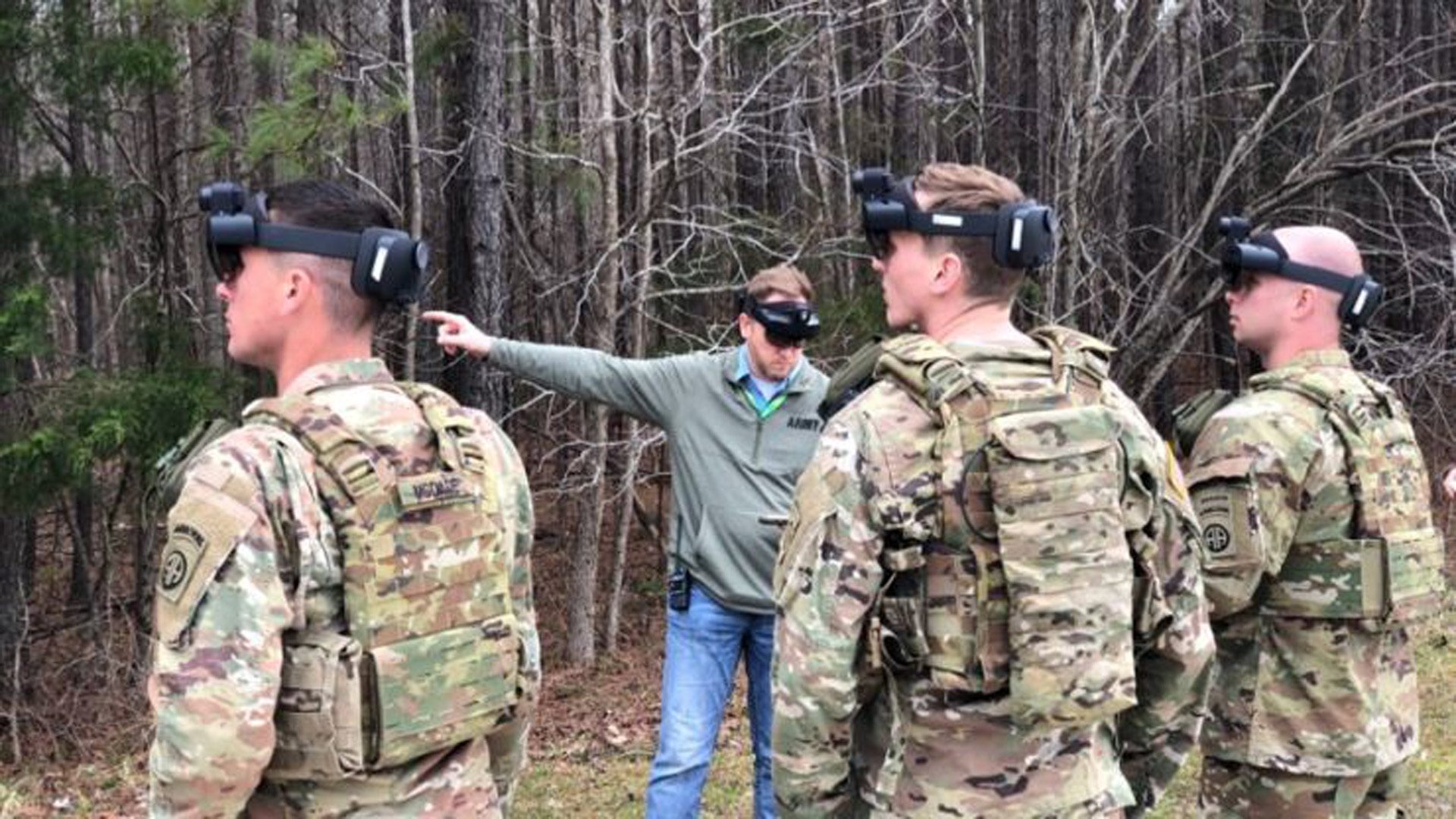Tech News
Microsoft’s Struggling Military AR Headset Gets Boost From Oculus Founder’s Latest Venture

Anduril Industries, a defense tech company founded by Palmer Luckey, the creator of Oculus, has announced a partnership with Microsoft to enhance the militarized AR headset based on HoloLens 2. This headset is currently being used by the United States Army.
Anduril’s Lattice platform, integrated into Microsoft’s Integrated Visual Augmentation System (IVAS), aims to provide soldiers with real-time threat detection. By aggregating data from various sources such as drones, ground vehicles, and aerial defense systems, Lattice enhances battlefield awareness and survivability, as reported by Wired.
According to Anduril’s website, Lattice utilizes sensor fusion, computer vision, edge computing, machine learning, and AI to analyze data from thousands of sensors and sources, creating a comprehensive operational picture on a single interface.
Anduril stated in a press release that soldiers equipped with Lattice-enabled IVAS headsets are quickly alerted to autonomously-detected airborne threats, enhancing their survivability in challenging environments. The integration of Anduril’s systems, along with other technologies, is expected to advance the mission capabilities of IVAS.
Luckey, who left Meta (formerly Facebook) in 2017 amid controversy over his support for a pro-Trump organization, emphasized the significance of the collaboration and its potential to revolutionize military operations.
“This project is a top priority for Anduril and has been for some time. It is one of the Army’s most crucial programs set to be deployed in the near future, with the aim of delivering the right data to the right people at the right time,” Luckey stated. “This aligns with Anduril’s core expertise, and we have been laying the groundwork for this for years. I am eager to showcase what’s next to our customers—I am incredibly excited about the future.”
Earlier this year, Luckey revealed that he was working on a new XR headset, which he described at AWE 2024 in June as being “driven by military needs but also intended for non-military applications.” The specific details of this headset have yet to be unveiled.
Microsoft Faces Challenges with Scaling IVAS
Microsoft’s IVAS, based on HoloLens 2, has encountered several hurdles since being awarded the U.S. Army defense contract worth up to $22 billion in 2019.
According to Breaking Defense, in 2019, the Pentagon’s testing arm reported that early units of IVAS received poor ratings during initial field testing due to concerns about reliability and ruggedness, particularly related to rain resistance. At that time, IVAS appeared to be based on off-the-shelf units with added sensors.

In 2022, newer and more ruggedized versions of IVAS reportedly faced additional negative field testing, highlighting issues with low-light and thermal imaging performance, as well as complaints of headaches, eye strain, and nausea from soldiers.
By late 2023, version 1.2 of IVAS showed significant improvements in reliability, low-light sensor performance, and form factor, according to a U.S. Army spokesperson quoted by Bloomberg. Feedback from soldiers was positive at that time.
Despite ongoing enhancements, the U.S. Army has not directed Microsoft to expand its IVAS efforts. Recent changes include transitioning from a helmet-style form factor to a less bulky flip-up display, which reportedly reduced the field of view from 70 degrees to 60 degrees while improving clarity.
A recent report from Breaking Defense suggests that the U.S. Army is preparing for a new open competition called “IVAS Next,” which could potentially replace Microsoft’s IVAS with offerings from other manufacturers like Kopin or even Anduril if they choose to participate. According to Breaking Defense, industry solicitation may occur later this year, providing more insights into the situation.
-

 Destination9 months ago
Destination9 months agoSingapore Airlines CEO set to join board of Air India, BA News, BA
-

 Breaking News10 months ago
Breaking News10 months agoCroatia to reintroduce compulsory military draft as regional tensions soar
-

 Gadgets4 months ago
Gadgets4 months agoSupernatural Season 16 Revival News, Cast, Plot and Release Date
-

 Tech News1 year ago
Tech News1 year agoBangladeshi police agents accused of selling citizens’ personal information on Telegram
-

 Productivity12 months ago
Productivity12 months agoHow Your Contact Center Can Become A Customer Engagement Center
-

 Gadgets1 month ago
Gadgets1 month agoFallout Season 2 Potential Release Date, Cast, Plot and News
-

 Breaking News10 months ago
Breaking News10 months agoBangladesh crisis: Refaat Ahmed sworn in as Bangladesh’s new chief justice
-

 Toys1 year ago
Toys1 year ago15 of the Best Trike & Tricycles Mums Recommend























